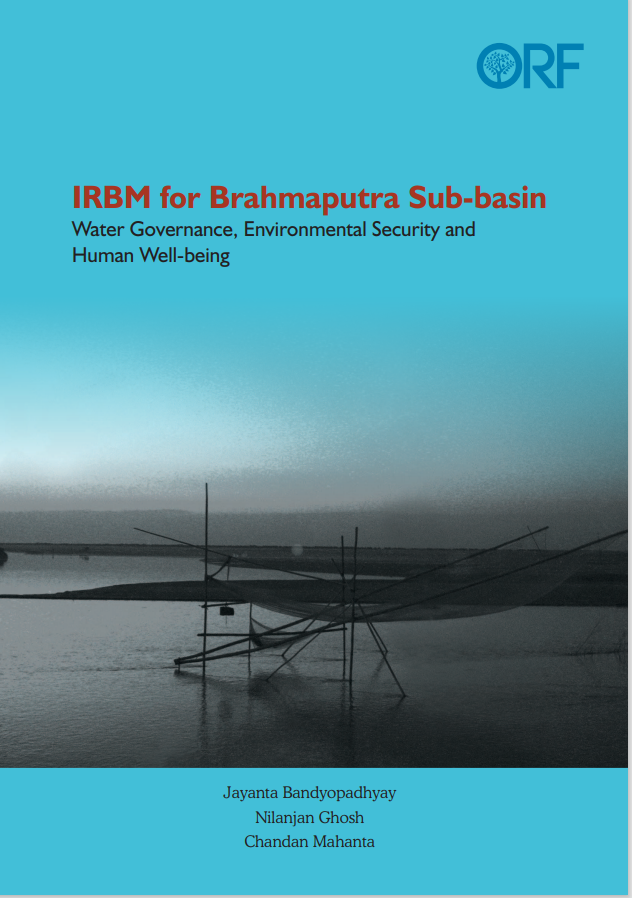🌿 COP 30 - Building a Greener Tomorrow
The 30th UN Climate Change Conference (COP 30) is taking place in Belém, Brazil. Stay informed about global climate actions, negotiations, and live sessions from 10 – 21 November 2025.
Get Updates
IRBM for Brahmaputra Sub-basin Water Governance, Environmental Security and Human Well-being

Files
Date
January, 2016Author(s)
- Jayanta Bandyopadhyay
- Nilanjan Ghosh
- Chandan Mahanta
Abstract
The Brahmaputra sub-basin—spread over Bangladesh, Bhutan, China and India and part of the Ganges-Brahmaputra-Meghna basin—has historically been endowed with abundant water. Yet the populations who live in the region have not benefited from the natural wealth of the sub basin; the levels of poverty are high. Traditional development theory makes a direct correlation between scarcity of natural resources (like water) and poverty. In the case of the Brahmaputra sub-basin, however, the paradox is clear: “ample water, ample poverty”. The situation is not expected to improve in the future, and the governance of the Brahmaputra will continue to be a huge challenge. Environmental security and the promotion of human well-being are two of the most crucial aspects of such difficult task. 'Environmental Security' is defined in this report as “a state of absence of conflicts in the complex and interconnected relations in and between the biological, social, economic and cultural processes of human societies and the natural environment.” It depends on various factors such as the dynamics in the natural environment, population change, and degree of access to environmental resources. It is in this context that this report examines the tenets of Integrated River Basin Management (IRBM), where ecology and ecological economics of water are defined as important cornerstones. This report challenges the notions of “surplus” and “deficit” river basins—concepts that are used often in current literature on India's water resources—and highlights the lack of an ecosystem perspective in the country's river basin management. This absence creates an important void in India's policymaking and practice and is true in the case of the management of the Brahmaputra sub-basin. The report utilises the Drivers-Pressures-State-Impacts-Response (DPSIR) approach to understand the critical management challenges in the sub-basin. The four-fold management challenges for the Brahmaputra are: floods, bank erosion, and shifting of river flows; hydropower projects within the Indian territory creating situations of conflict, and the hydropower projects in the Tibet region of China; proposed water transfer projects entailing the interlinking of rivers; and the concerns of global warming and climate change. These management challenges are magnified by the lack of an ecosystem perspective, which creates threats at the social-economic-ecological interface of human existence, through the critical ecosystems-livelihoods linkages.
Citation
Observer Research Foundation
Publisher
Observer Research Foundation
Rights Holder
Observer Research Foundation
URI
https://knowledgehub.pksf.org.bd/collections/c0xhNmRKVVVleFhjMldXWlpZdmZBZz09
